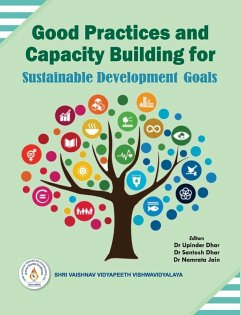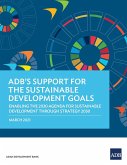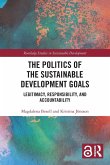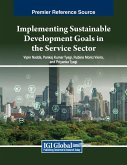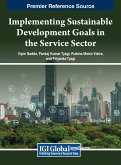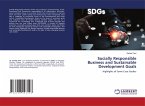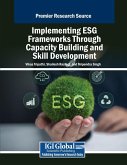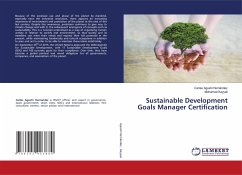The agenda of 2030 for sustainable development is an action plan for people, planet and prosperity. It comprises of 17 Sustainable Development Goals and 169 targets adopted by United Nations in the year 2015. Nations across the globe are on a collective journey with a pledge not to leave anyone behind. However, the COVID-19 pandemic has disrupted the entire world and is posing new challenges for attaining these goals. Attainment of goals demand good practices and capacity building in 17 thematic areas to balance the three dimensions of sustainable development-the economic, social and environmental. The present book intends to draw attention towards the multi-disciplinary areas wherein collective action and cooperation is required at the local, national, regional and global level to achieve the set targets. It describes recent trends and developments in the field of Science, Engineering, Management and Architecture.KEY FEATURESHighlights crucial topics like quality education, an important contributor towards sustainable development and positive ageing wherein positive resolutions can serve as a springboard to achieve ageing positively. Discusses electronic waste, an upcoming new waste stream and its nascent stage of recycling in the organized sector that demands quick remedial actions for sustainability. Throws light on sustainable alternatives for permanent (pucca) house using bamboo in flood prone areas which is a perfect blend of the indigenous architecture and technology, resistant to weather conditions, long-lasting, cost-effective, with low embodied energy and reduced carbon footprint. Focusses on the concepts of nature inspired algorithms, role of biomimetic materials, hempcrete, need of coopetition as a business strategy, bloom's taxonomy, wireless sensor network applications and the role of communication intelligence for developing future managers. Academicians, practitioners and students will find this book of immense value.
Bitte wählen Sie Ihr Anliegen aus.
Rechnungen
Retourenschein anfordern
Bestellstatus
Storno

